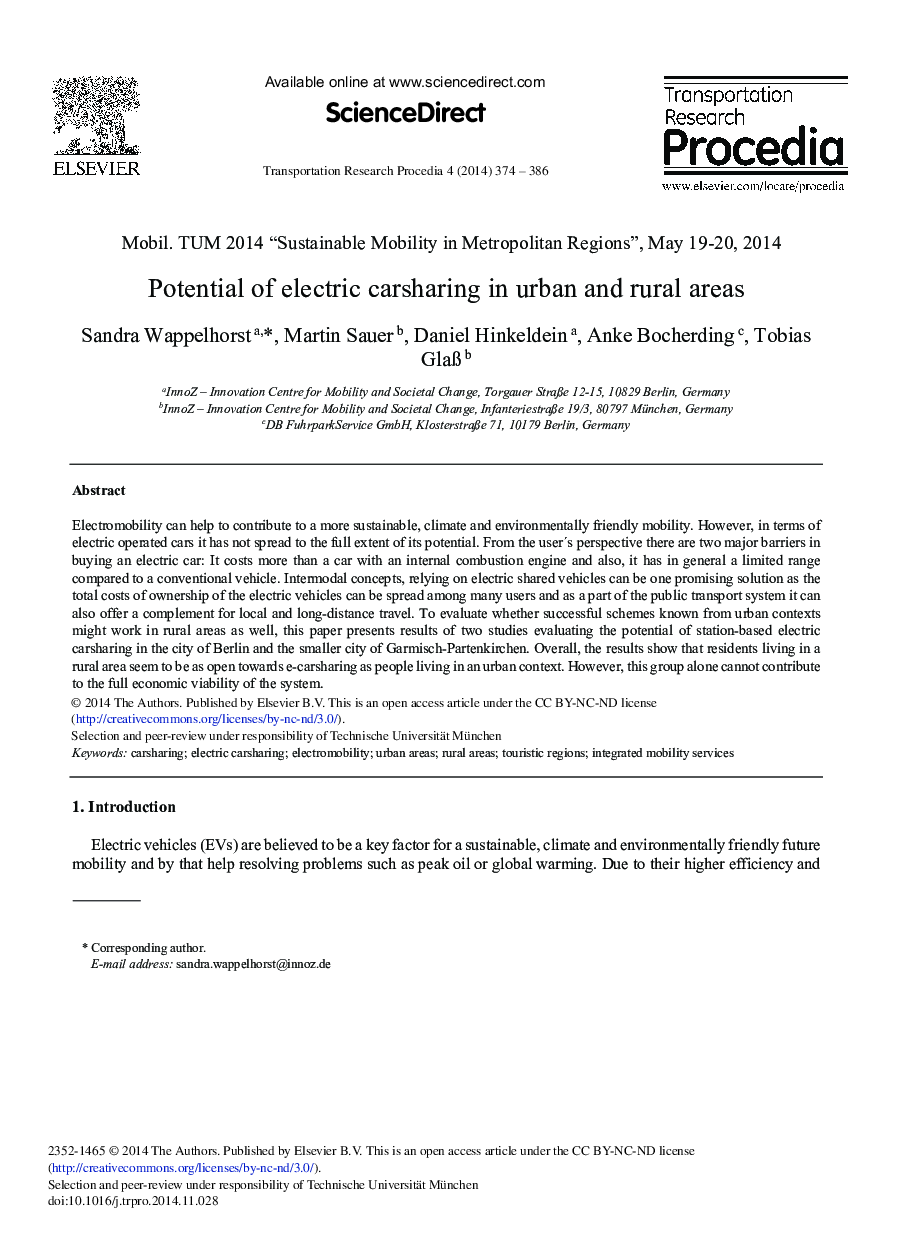| Article ID | Journal | Published Year | Pages | File Type |
|---|---|---|---|---|
| 1106337 | Transportation Research Procedia | 2014 | 13 Pages |
Electromobility can help to contribute to a more sustainable, climate and environmentally friendly mobility. However, in terms of electric operated cars it has not spread to the full extent of its potential. From the user's perspective there are two major barriers in buying an electric car: It costs more than a car with an internal combustion engine and also, it has in general a limited range compared to a conventional vehicle. Intermodal concepts, relying on electric shared vehicles can be one promising solution as the total costs of ownership of the electric vehicles can be spread among many users and as a part of the public transport system it can also offer a complement for local and long-distance travel. To evaluate whether successful schemes known from urban contexts might work in rural areas as well, this paper presents results of two studies evaluating the potential of station-based electric carsharing in the city of Berlin and the smaller city of Garmisch-Partenkirchen. Overall, the results show that residents living in a rural area seem to be as open towards e-carsharing as people living in an urban context. However, this group alone cannot contribute to the full economic viability of the system.
